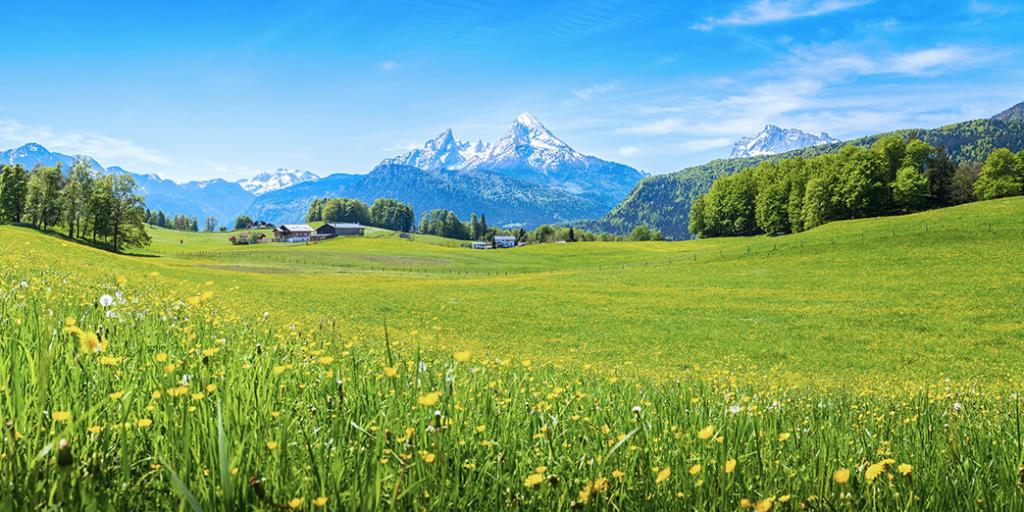
In Pastures Green
In this time when we are all being urged to "go green" in every part of our daily lives, we may lose sight of the word picture painted in Psalm 23, which is probably the most oft quoted Psalm in the Bible. I like the way it is expressed in the old English hymn by William Havergal, a well-known writer of hymns (1793–1870).
The first line goes, "The Lord's my Shepherd, I'll not want; He makes me down to lie, In pastures green He leadth me, the quiet waters by." This beautiful line from King David of ancient Israel evokes a pastoral scene that is lost on most people in our modern, urbanized society. If one has not experienced the peace and tranquility of cattle contentedly grazing in a field of lush grass, then the impact of what the Psalmist meant to convey can be lost. As we rush about our hectic lives, often perplexed by the problems of the day, we lack this tranquil attitude or sense of contentment that everyone needs to find true happiness.
Maybe it hits me a little more poignantly than most because of childhood memories of just such a pastoral scene. My grandfather, now long-dead, was a cattleman. Not a big time rancher, but a man who raised registered Angus cattle on his beloved Valley Angus Farms in southern Arkansas. To him it was a beautiful sight to see his cattle grazing in meadows of green grass. Sure, it was his business, but it was also a scene that represented the blessings of life, a scene that represented peace and prosperity. Maybe it was the hard work and tenacity, thrift, and market savvy that made it possible for him survive the great 1927 Mississippi and Arkansas river valleys flood, as well as to survive the great Depression and then World War II, that made this peaceful scene mean so much to him.
While my grandfather acknowledged God's blessings, he did not understand that much of the incredible prosperity and blessings enjoyed by the English-speaking peoples of the earth was a direct result of the promises God made to Abraham millennia before. But, the word picture of Psalm 23 was not lost on him because of the hard times that he had overcome.
Have you found "pastures green" and "quiet waters by"? Regardless of your circumstance or locale, this condition of peace can be had. It comes from an understanding of the purpose of life and the knowledge of how God would have us live it.
In the time of the Apostles, Paul wrote to the Church at Phillipi, "Be anxious for nothing, but in everything by prayer and supplication, with thanksgiving, let your requests be made known to God; and the peace of God, which surpasses all understanding, will guard your hearts and minds through Christ Jesus (Philippians 4:6–8). And then in vv. 8–9 he gave the key to achieving this peace: "Finally, brethren, whatever things are true, whatever things are noble, whatever things are just, whatever things are pure, whatever things are lovely, whatever things are of good report, if there is any virtue and if there is anything praiseworthy—meditate on these things. The things which you learned and received and heard and saw in me, these do, and the God of peace will be with you."
If we approach our daily lives with these timeless, godly principles in mind and put them into practice, we can have the physical and spiritual blessings pictured by the words of this beloved 23rd Psalm.
Our websites found at Tomorrowsworld.org and LCG.org contain a wealth of free information to help you cultivate your green pastures for this life and in God's coming kingdom. Get started by visiting these sites and ordering your free copy of The World Ahead: What Will It Be Like? today.
Stay up to date with our Weekly Digest Email!
Tomorrow's World ComMentary Podcast
Subscribe to Tomorrow's World Commentary podcasts on iTunes and Google Play!



